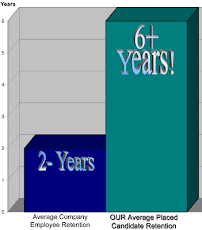
The WSJ this week published an article looking at the "overhype" of EV's....."A well known auto-industry forecasting firm on Wednesday suggested that the heavily promoted battery-powered vehicles about to appear on roads around the world are "overhyped" and headed for a much slower takeoff than some auto makers and industry analysts expect.
In the new study, J.D. Power & Associates said sales of electric cars are likely to remain low for the next several years and won't make up more than a small slice of the global market even 10 years down the road.
The combined sales total of hybrid cars such as the Toyota Motor Corp. Prius and all-electric models like the Nissan Motor Co. Leaf will come to just 5.2 million in 2020, J.D. Power said. That would represent just 7.3% of the global market in 2020, which J.D. Power sees reaching 70.9 million passenger vehicles then.
Some auto makers and other forecasters are more bullish. General Motors Co. and Nissan are spending billions of dollars to market electric cars they hope will become mainstream vehicles. The Chevrolet Volt, made by GM, and the Nissan Leaf are due to arrive in showrooms in the U.S. in the next few months. A separate study by Boston Consulting Group sees hybrids and electric vehicles making up 26% of the global passenger car market in 2020. PRTM, another research firm, estimates the total may be closer to 30% as battery prices fall and the price of the vehicles comes closer to standard models.
Many countries around the world, including the U.S. and Israel, are supporting the introduction of electric vehicles with tax breaks and other financial incentives as part of an effort to reduce petroleum consumption and cut greenhouse gas emissions.
"Everybody feels that everybody else should be driving environmentally friendly vehicles. Although consumers generally want to be environmentally conscious, they are much more conscious of their personal economics," said Dave Sargent, J.D. Power's vice president of automotive research. "Right now, consumers have a lot of unanswered questions about the purchase premium of a hybrid or all-electric vehicle."
J.D. Power said that without a dramatic rise in fuel prices, a coordinated global governmental push or a technological breakthrough that lowers the cost of the cars, consumers are unlikely to adopt the vehicles. The researcher didn't find that any of these were very likely to happen.
J.D. Power pointed to consumer surveys to underpin its findings. Buyers didn't like the physical appearance and perceived performance of hybrids and worried about the limited range and recharging times for all-electric models.
"Based on our research of consumer attitudes toward these technologies—and barring significant changes to public policy, including tax incentives and higher fuel-economy standards—we don't anticipate a mass migration to green vehicles in the coming decade," said John Humphrey, J.D.'s senior vice president of automotive operations.
More than 20 electric vehicles are planned to go on sale in the U.S. in the next three years and the U.S. government has backed $5 billion in investments for battery technology and consumer incentives to kick-start the market.
The alliance of Nissan and Renault SA has invested $4 billion in a suite of electric vehicles due out over the next several years and anticipates 10% of global industry sales in 2020 will be all-electric models. That would equate to about seven million vehicles based on J.D. Power's industry forecast for sales in 2020.
J.D. Power estimates that the U.S. market in 2020 will account for purchases of about 100,000 pure-electric cars in total, or about two-thirds of the annual U.S. sales of Toyota Prius hybrids last year. Hybrids will make up 1.7 million in sales that year under the forecast.
Europe will be the largest market for electric cars, making up more than half the projected 1.3 million sales, J.D. Power says.
Seifi Ghasemi, the chairman and chief executive officer of Rockwood Holdings, which produces the lithium chemicals needed for advanced batteries as well as other chemicals, said in an interview Tuesday that some people underestimate the potential attraction of electric vehicles.
"I think we might be underestimating the enthusiasm of the customers," Mr. Ghasemi said. He said governments could and should be doing more to press for the adoption of electric vehicles as a national security and economic concern.
"Unless we change the internal combustion engine to something other than that—it doesn't solve the fundamental issue of energy security," he said."
- Mike Ramsey at michael.ramsey@wsj.com
















No comments:
Post a Comment